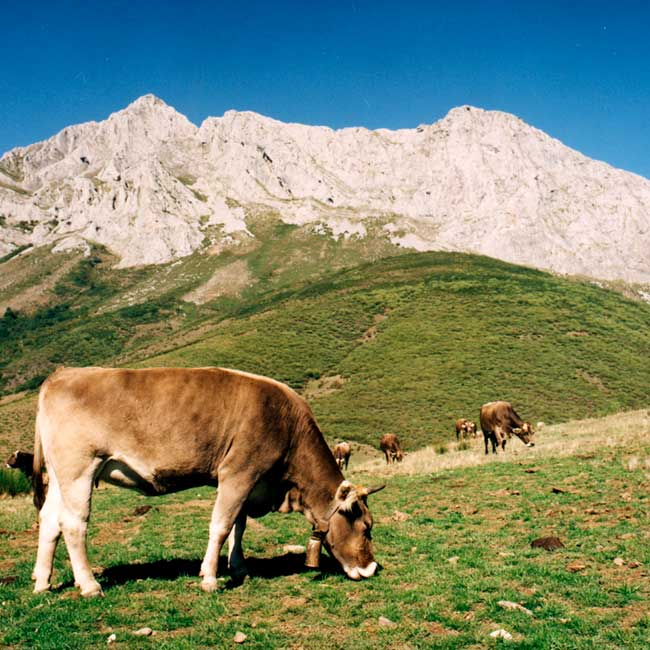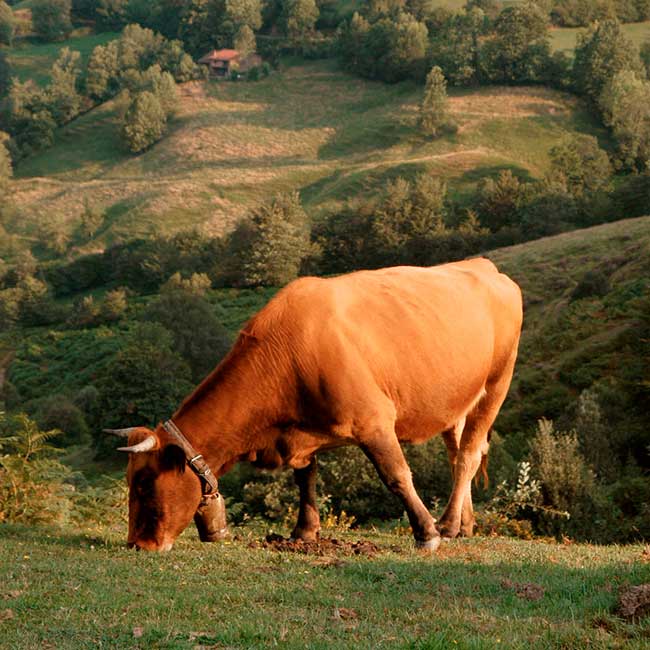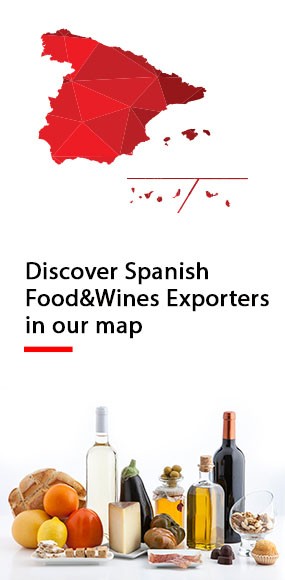.png.transform/rendition-xs/image_image%20(1).png)
An Exploration Into Spain’s Organic Beef Market
Organic sustainable meat production, in particular beef, is a small, but growing portion of the meat sector in Spain.

According to the September 2020 economic report issued by the Ministry of Agriculture, Fisheries and Food (MAPA), Spain’s conventional beef market share was worth 3 billion euros in 2019. This market share represents approximately 15.4 percent of the total national industrial meat production market.
Since 2018, Spain has been ranked fifth in the European Union for total heads of cattle. Although Ireland, Germany, the United Kingdom and France precede Spain in European rankings for total beef production, Spain continues to be a mayor European player in the industrial beef sector, which has increased its international beef exports in recent years.
Yet while conventional beef production in Spain remains stable it has experienced a slight decrease in production share and in domestic consumption year-over-year according to MAPA. Interestingly, while total conventional beef production profits have decreased slightly the organic pasture-raised and/or grass-fed sustainable market is seeing slow but steady gains. The production of organic beef, and beef from autochthonous or designation of origin breeds has also been growing at the same rate in Spain as in other EU countries, indicating a marked increase in consumption of organic beef as well as consumer interest.
Raising natives breeds in Spain
Finca Sarbil Carne Ecológica is a sprawling 1,000-hectare organic farm located in Etxauri, Navarra, just 10 km from Pamplona, that specializes in breeding and raising native bovine, equine, caprine and poultry breeds to produce organic meat. The company’s organic beef production represents the largest part of sales for the company says Javier Salaverrí, one of three founding partners, although overall production of all their animal products are in relatively modest volumes in comparison to and in proportion to mass-produced meat, he explains.
Nestled in the hills of Sarbil, the animals, comprised of native breeds such as the Pyrenees and jaca Navarra breeds, have the privilege of roaming free and wild, feeding off the land where there are no stables, where they drink natural rainwater or snow water in winter months, says Salaverrí. The greatest, and most important difference with conventional beef production is that organic sustainable beef production demands a much broader in-depth knowledge of cattle breeding, states the founding partner. “You have to intimately know the animals’ needs, you must have a deeper understanding of how to raise them and of the land,” he states. “We don’t rely on chemicals, and antibiotics, or industrial feed, which requires a lot more time, and holistic understanding,” says the partner, “but this is what is required to produce organic sustainable meat,” he adds.
Health-conscious and environmentally-minded consumers

Salaverrí, who is a third-generation rancher, highlights that their main customer is health-conscious, and generally very environmentally minded and looks for ways to reduce his or her carbon footprint. The company has seen a significant increase in online sales since the beginning of the pandemic, says Salaverrí, which is the primary direct-to-consumer distribution channel for the company.“ In Spain there is a great deal of work needed in terms of nutrition education, and social consciousness in regards to sustainability,” says the partner. Yet while sales have increased slowly in the last 3-4 years, they have increased steadily, which could indicate increasing consumer awareness and consciousness, concludes Salaverrí.
Carne Ecológica Vaca Negra, located in Cenicientos, Madrid, is another important producer in the organic beef space committed to sustainable organic beef production, and specializes in reviving autochthonous breeds such as the Avileña Negra-Ibérica breed. The beef company has been certified organic since the year 2000 says Rodrigo Redondo, owner and Chief Operating officer. Carne Ecológica Vaca Negra, a family-owned company, is the first beef producer to specialize both in the production and commercialization of organic beef in the region of Madrid. The company fully controls its supply chain and production of packaged products, and is solely focused on quality, not quantity adds Redondo.
In danger of extinction, the Avileña Negra-Ibérica breed is known for its longevity and fertility. With over 500 heads of cattle, the company is focused on preserving the region’s biodiversity while simultaneously expanding the breed’s population on their 500-hectare sustainable ranch in Western Madrid. Interestingly, Cenicientos has a microclimate that greatly favours the raising and feeding of the Avileña breed, and the animals eat acorns and grass as well as in-house produced feed. In addition to packaged products such as organic hamburgers and meatballs, the company also produces a small amount of 100% pasture-fed beef throughout the year.
While the company’s opening of its first consumer-facing point-of-sale in 2017 at the Mercado Vallehermoso in downtown Madrid gave them a great deal of exposure, this year the company has experienced an increase in online sales due to the pandemic, says Redondo. In recent years, the organic producer has also experienced a steady increase in year-over-year sales, states Redondo. Market share will slowly increase as consumers become more conscientious about what they eat, adds Redondo. But there is still much work to be done for consumers to make the transition. Like Salaverrí, Redondo, believes the organic industry can only focus on domestic, local sales for the moment as sustainable production by definition is generally small-scale and takes time to produce.
While the conventional beef sector is increasingly reliant on international exports of meat to keep profits up, the organic beef sector is experiencing steady growth as consumers become more health and environmentally minded. Sustainable meat producers are generally limited to small volumes and focus on quality over quantity as well as sustainability of their farms, and of their animal-rearing methodologies. And these same producers are proponents of more organic producers joining the organic sustainable meat sector so that this may increase awareness and market share, and support extensive renewable farming in Spain.
Text: Nathalie Obregón

